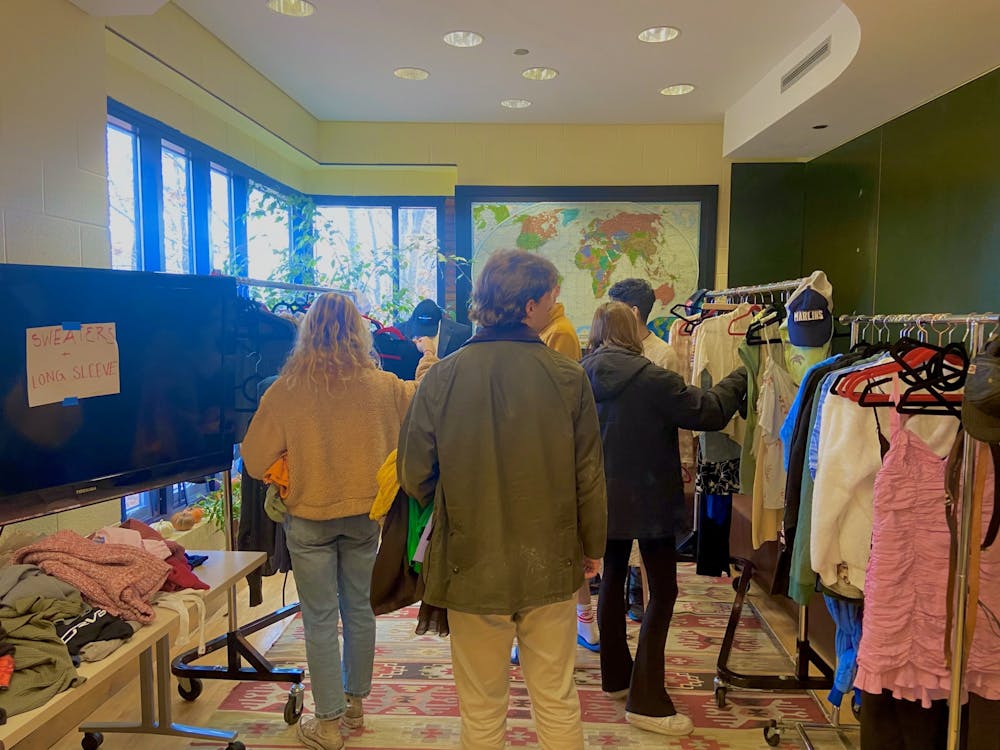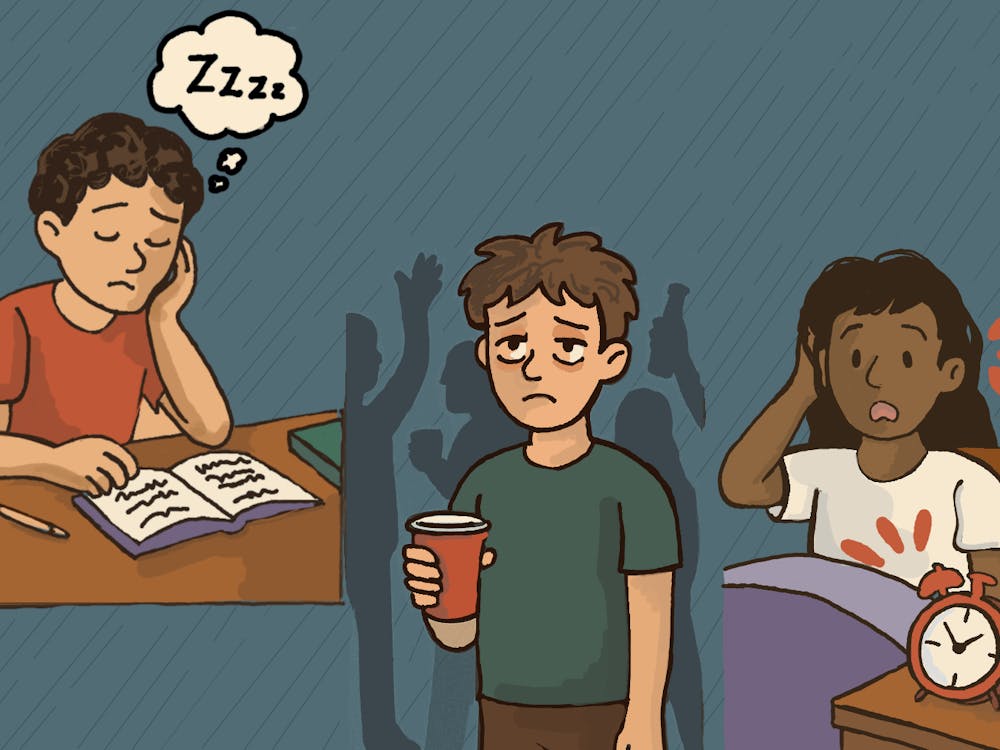What originally started as part of a class project last year, Swap at U.Va. has quickly gained traction as the newest clothing swap organization on Grounds. The organization aims to promote sustainability and self-expression through community clothing swaps each semester. The “big swap,” where students trade in tickets for clothing, will happen this Sunday on South Lawn.
Swap at U.Va. held their first clothing swap opportunity in front of O-Hill dining hall last March, and their second swap in Hereford Residential College’s Vaughan House last December. Second-year College student Antonio Rosario and second-year Education student Abby Kupstas, founders of Swap at U.Va., said they saw an opportunity to further support sustainable consumption of clothing at the University.
"By promoting secondhand fashion and encouraging people to swap clothes instead of buying new ones, we hope to inspire more environmentally-friendly shopping practices," Rosario said.
During each swap event, participants can trade in their clothing for a ticket — one piece of clothing equals one ticket. Participants can then use their tickets to pick out new pieces to take home. Swap at U.Va. accepts any type of clothing except undergarments and socks. There is a thorough examination process to evaluate the condition of each piece of clothing and if it’s eligible to be swapped.
Members of the organization also frequently visit thrift stores to find unique pieces of clothing to add to the collections outside of student donations.
“We pride ourselves on at least knowing that all of the clothes are going to have a second home…[and] not going to a landfill somewhere,” Rosario said.
Swap at U.Va. is not only an opportunity for students to trade in their clothes for something new, but also an opportunity for education on the importance of sustainability at the University, according to Kupstas. The organization has three subcommittees— fashion, sustainability and operations. Their sustainability committee helps Swap prevent buy-in to fast fashion and inform students about more sustainable options for getting new clothes.
“Fast fashion has led to a culture of overconsumption, with consumers buying more clothes than they need and disposing of them quickly,” Kupstas said. “Reducing textile waste is crucial for fighting climate change … Swap at U.Va. provides an innovative way to achieve this by reducing the carbon footprint associated with clothing production, transportation and disposal.”
After each swap, leftover pieces are either stored for future swapping events or donated to women’s shelters in Charlottesville such as in SHE and SARA.
“We are very intentional as to where we donate our clothes to make sure that it's just not going to end up being trashed, [and] somebody else [can] find worth and value out of the clothing,” Rosario said.
On the path to make the University community as a whole more sustainable, Swap has looked for partnerships with other on-Grounds groups that support environmental efforts. Their partnership with Hereford Residential College, a community of students who are sustainable and environmentally-minded, has helped swaps come to fruition.
“Hereford was kind enough to help us out with planning our events,” Rosario said. “In the future, we plan to organize events closer to central Grounds and partner with other organizations, which can help us reach a wider audience.”
In addition to their regular clothing swap events, Swap is planning to host interclub events that focus on sustainability and fashion. These events will include jewelry-making workshops, upcycling days — where old clothes will be refurbished in a fashionable way — and more.
Rosario and Kupstas hope to become more involved with other clubs, local businesses and community organizations in the Charlottesville community. By promoting the benefits of second-hand fashion, Swap has become an opportunity for a wide array of people to come together to share their love for fashion, sustainability and community.







